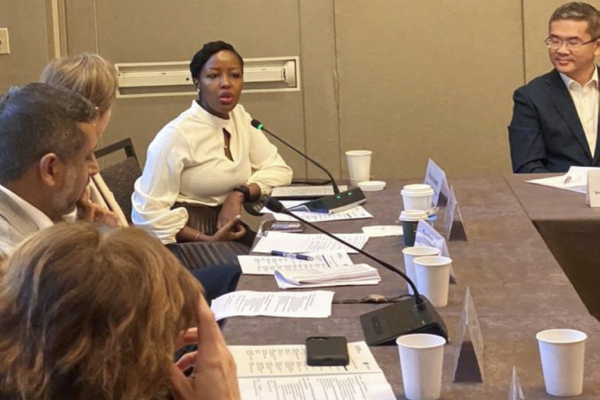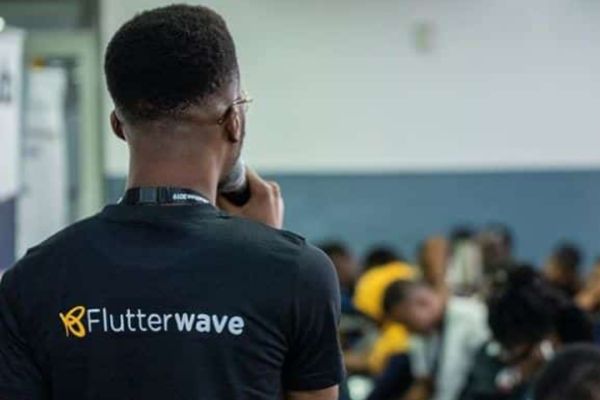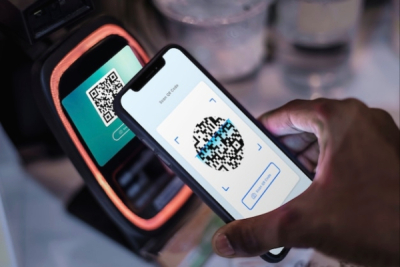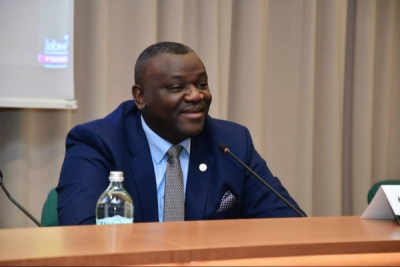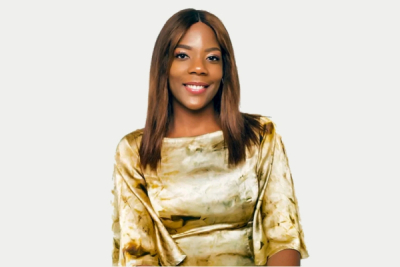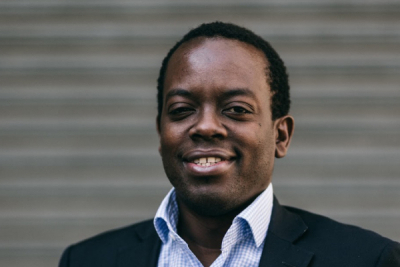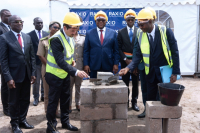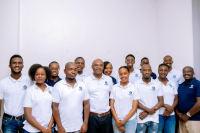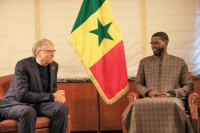In 2023, Rwanda adopted a national artificial intelligence (AI) policy, aiming to leverage this technology to drive growth across various sectors.
Rwanda and Singapore unveiled the "AI Playbook for Small States" on Sunday at the United Nations General Assembly, offering guidance for smaller nations navigating the complexities of artificial intelligence (AI) adoption.
The playbook, developed by the Digital Forum of Small States (Digital FOSS), highlights best practices and lessons learned from its members. Small states often face unique challenges in implementing AI strategies, including limited resources, talent shortages, and the intricacies of developing governance frameworks.
According to the document, small states face unique challenges in adopting AI, such as limited resources, difficulty accessing talent, and the complexity of developing governance frameworks. Josephine Teo, Singapore’s Minister for Digital Development and Information, noted that her country has worked to identify common obstacles and spotlight successful solutions for effective AI adoption.
In this era of digital transformation, AI is increasingly becoming one of the key technologies. A study conducted by McKinsey in collaboration with Rwanda’s Ministry of ICT and Innovation suggests that an investment of $76.5 million in the implementation of Rwanda’s national AI strategy could generate $589 million in the next five years.
The "AI Playbook for Small States" covers a range of topics, including AI development, its impact on governance, security, and society. The document will be regularly updated with new practices and solutions implemented by countries in their journey toward AI adoption.
Adoni Conrad Quenum
Payment technology company Flutterwave announced, on September 24, the expansion of its money transfer service, Send App, to 49 states across the United States.
Implemented through a strategic collaboration with American MainStreet Bank, the expansion aims to provide Africans in the Diaspora with a seamless way to send money back home.
The move highlights Flutterwave's commitment to offering secure and efficient banking solutions, compliant with regulatory standards.
Digital payments in India have experienced explosive growth in recent years, largely due to the success of its Unified Payments Interface (UPI) system. Buoyed by this achievement, India has expressed its readiness to support other nations in developing their own digital payment systems.
India is working to assist several African nations in establishing their own digital payment systems, inspired by the success of its Unified Payments Interface (UPI). The National Payments Corporation of India (NPCI) has begun discussions with at least 20 countries across Africa and South America to adapt the UPI model, with the goal of enhancing financial inclusion on the continent.
Launched in 2016, UPI facilitates real-time payments, allowing users to transfer funds directly between bank accounts for both peer-to-peer transactions and transactions between customers and businesses. The system has already been successfully implemented in countries such as Sri Lanka, the United Arab Emirates, and most recently, Namibia. In February 2023, Mauritius also adopted UPI as part of a broader strategy that includes the introduction of RuPay cards.
The initiative to implement this payment system in Africa is motivated by the positive outcomes observed in India, where UPI has significantly transformed the financial landscape. By December 2023, UPI transactions reached 12 billion for that month alone, totaling over 100 billion transactions for the year and exceeding a value of $2 trillion.
In Africa, where a substantial portion of the population remains unbanked, this digital solution offers a vital opportunity to promote both digital and economic inclusion. A report from November 2023 by AfricaNenda, an independent organization focused on developing instant payment systems on the continent, indicated that 27 African countries have yet to adopt instant payment functionalities. Additionally, a McKinsey study forecasts that electronic payment revenues in Africa could reach $40 billion by 2025, underscoring the growing interest in investing in this infrastructure.
Samira Njoya
About two weeks ago, the Democratic Republic of Congo (DRC) presented its financing needs and business opportunities in the digital sector in China. The country plans to implement several major projects.
The Democratic Republic of Congo's (DRC) Minister of Posts, Telecommunications, and Digital Economy, Augustin Kibassa Maliba, is seeking opportunities in the United States to advance the country's digital sector. From Friday, September 20 to Friday, September 27, he is in New York, leveraging his participation in the 79th United Nations General Assembly to meet with key partners at Google’s Manhattan office, as well as with various government and international organizations. The discussions will focus on innovative solutions for digital cooperation.
The Ministry of Posts, Telecommunications, and Digital Economy has stated that the visit will also showcase investment opportunities within the DRC's digital sector. Kibassa Maliba is set to participate in a bilateral meeting between DRC President Félix Tshisekedi and Polish President Andrzej Duda at the Polish consulate in New York.
The DRC has made digital transformation a core part of its strategy for economic diversification. The sector is viewed as a key growth driver for the country’s future. Priorities include improving high-speed connectivity across the nation to enhance digital inclusion, transforming public services, and opening the market to international investors offering high-value digital products and services.
According to the GSMA, broadband availability combined with digital technologies could boost agricultural yields by 10.5% to 20% and increase profits by 23% in sub-Saharan Africa. In small and medium-sized enterprises, internet access and digital solutions could enhance labor productivity by 2% to 4%. The DRC stands to benefit from similar growth.
In its national digital plan, the DRC government aims to make digital technology "a lever for integration, good governance, economic growth, and social progress." The country requires expertise and funding to realize this vision, and the discussions and potential agreements formed in New York could significantly contribute to these efforts.
Muriel Edjo
She earned her university degree in France. After several years of experience in the financial sector, both in France and Africa, she established her own fintech company.
Magalie Gauze-Sanga is a Cameroonian economist and entrepreneur, serving as the founder and CEO of Koree, a rewards application aimed at fostering customer loyalty in Francophone Africa.
Founded in 2022, Koree enables users to create digital loyalty cards that allow merchants to credit cashback and provide change. The platform addresses the persistent issue of small change shortages prevalent in Francophone Africa and supports various payment methods, including cash, mobile money, and bank cards.
The inspiration for the app struck Gauze-Sanga after she faced a shortage of change while purchasing pastries at a bakery in Abidjan, Côte d'Ivoire. "Working in the payments industry in sub-Saharan Africa allowed me to refine my idea for digital cards similar to an 'Apple Wallet' that could tackle this problem. I aimed to incorporate several additional services to simplify life for consumers and enhance their purchasing power, such as earning cashback," she explained in April 2024.
In January 2024, Koree secured $200,000 in pre-seed funding to facilitate its expansion throughout Francophone Africa, enhance its merchant network, broaden its user base, and tailor the product to meet market demands.
Gauze-Sanga also serves on the board of African Women in FinTech & Payments (AWFP). She holds a master's degree in industrial economics from Paris 1 Panthéon-Sorbonne University and a master's in management from Em Lyon Business School.
Her professional journey began in 2012 at BGFIBank Cameroon, where she interned in private wealth management. In 2013 and 2014, she worked as an assistant in private banking at ODDO BHF, a financial group based in France. In 2015, she became a consultant at PayPal and transitioned to a research analyst role at BNP Paribas in 2016.
In 2019, Gauze-Sanga was appointed head of financial services for e-commerce startup Jumia in Francophone West Africa. From January to June 2021, she held the roles of COO and later CMO at Ivorian fintech Julaya. Subsequently, from July 2021 to November 2022, she managed payments for Ivorian online commerce startup ANKA.
In 2023, she became the first woman to win the Ecobank Fintech Challenge, earning a prize of $50,000.
Melchior Koba
With over a decade of experience in the African financial sector, he is a seasoned computer scientist specializing in fintech. He has already created three fintech companies.
Stone Atwine (photo) is a Ugandan computer scientist and tech entrepreneur. He is the co-founder and CEO of Eversend, a fintech startup.
Founded in 2017 with Ronald Kasendwa, Eversend offers an all-in-one payment platform specializing in cross-border mobile money transfers, virtual cards, bill payments, and cryptocurrencies, particularly serving expatriates. The platform allows users to manage money via cryptocurrencies, using APIs (Application Programming Interfaces), enabling easy payments and currency exchanges.
"For Africans and Africans in the diaspora that experience inconvenient and expensive financial services and hidden fees, Eversend is a one-stop financial services hub that provides a multi-currency wallet allowing them to exchange, save and send money at the best possible rates, while offering personal loans, payments, investments and and other financial services," said Stone Atwine in 2020.
Today, the company supports nine currencies and boasts over 700,000 satisfied users. It operates in Uganda, Kenya, Nigeria, Ghana, France, the UK, and the United States.
Before founding Eversend, Stone Atwine co-founded two other startups in 2013: Useremit and Yetu Credit Finance. Useremit facilitates international money transfers, particularly for those in rural Africa, often underserved by traditional banking services. Yetu Credit Finance, a microfinance company, provides salary loans to Ugandan civil servants. He served as its managing director from its inception until 2017.
Atwine holds a bachelor's degree in computer science from Mbarara University of Science & Technology in Uganda, earned in 2004. Before diving into entrepreneurship, he worked for Payment Solutions International, a fintech firm based in South Africa, where he was responsible for the company’s business development in Uganda and served as the country manager for Kenya.
In 2015 and 2016, Atwine was recognized by the Choiseul Institute in Paris as one of the top African leaders under 40 to watch for his contributions to the continent's economic development. In 2017, the French government named him an exceptional talent in entrepreneurship.
Melchior Koba
Raxio Group is continuing its expansion in Africa, having already deployed data centers in Uganda, Ethiopia, Mozambique, and the Democratic Republic of Congo (DRC).
Data center operator Raxio Group announced earlier today the inauguration of its data center in Abidjan, Côte d'Ivoire, as part of its African expansion strategy. Raxio Côte d'Ivoire (CIV1) aims to meet the growing demand for connectivity, storage, and data processing in Côte d'Ivoire and across the West African Economic and Monetary Union (WAEMU).
Certified as a Tier 3 facility, CIV1 offers neutrality regarding telecom operators and cloud services. The data center can accommodate up to 800 racks and provide 3 MW of computing power.
"Abidjan is the ideal location for organizations and businesses from across the economic region to colocate their mission-critical infrastructure in a highly reliable and secure facility. We are proud to contribute a fundamental cornerstone to facilitate Côte d’Ivoire’s continued digital growth and cement its hub status in the region," said Robert Mullins, CEO of Raxio Group.
CIV1 is Raxio Group's fifth data center in Africa. Its inauguration follows the launch of DRC1, Raxio's data center in the Democratic Republic of Congo (DRC), about a month earlier. This expansion aligns with Raxio's 2019 commitment to build 10 to 12 data centers across the continent to meet the increasing demand for digital services.
These investments come amid a significant shortfall in supply, caused by the late adoption of data centers in the region. As of mid-2023, Africa hosted less than 2% of the global colocation data center capacity, with more than half located in South Africa, according to the "Data Centres in Africa Focus Report" by Oxford Business Group, published in April 2024. The report also notes that Africa needs 1,000 MW and 700 facilities to meet demand and bring capacity density in line with that of South Africa, the region's leader.
Isaac K. Kassouwi
Uganda's Agent Banking Company (ABC) has received an undisclosed investment from Goodwell Investments, marking the Dutch firm's entry into Uganda’s financial inclusion sector, Goodwell announced September 19.
Through Goodwell’s €150 million uMunthu II Fund, the funding will help ABC expand its client base, increase agent coverage, and introduce new services.
Goodwell’s uMunthu II Fund focuses on early-stage growth companies in financial services, food, agriculture, mobility, and logistics across Africa.
The first-ever Arewa Tech Fest is scheduled for September 25 and 26, 2024, in Kano, Nigeria. To support young Nigerian innovators, a tech fund will be launched as part of the event.
On Monday, September 23, the Arewa Tech Fest, a technology festival in northern Nigeria, announced the launch of a $50 million fund named the Arewa Tech Fund. The initiative aims to foster a strong digital ecosystem in the region.
“The Arewa Tech Fund represents a significant step towards harnessing the potential of our youth and fostering a culture of innovation that will not only benefit Northern Nigeria but also have a far-reaching impact across the nation. We are committed to investing in solutions that drive sustainable growth, and this fund will play a vital role in building the next generation of tech leaders and innovators,” said Mallam Nasir El-Rufai, former governor of Kaduna State and one of the project’s initiators.
This initiative comes at a time when investment in Africa’s tech sector has been declining. According to the Africa 2023 Investment Report Crisis or Adjustment by Briter Bridges, this drop is not due to a lack of sector appeal but rather the absence of mega-deals ($100 million+ funding rounds) as global venture capital markets slow down.
This global slowdown has impacted African start-ups, with 89% of venture capital in the continent’s tech ecosystem coming from foreign sources, according to the United Nations Development Programme (UNDP). In Nigeria, start-ups raised $1.8 billion in 2021, $1.2 billion in 2022, and just $469 million in 2023, according to Partech Africa data.
The Arewa Tech Fund will provide local innovators with the capital and resources necessary to develop their tech projects. In the long term, the fund is expected to stimulate economic growth and create jobs in the region.
Adoni Conrad Quenum
The ongoing digital transformation in Senegal requires significant funding to reach its full potential. To advance the projects, the country needs strategic partners.
Senegalese President Bassirou Diomaye Faye (photo, left) met with Bill Gates (photo, right), founder of the Gates Foundation, on Monday, September 23, during the 79th United Nations General Assembly in New York. According to a statement from the Senegalese presidency, the meeting focused on several strategic areas of cooperation, including optimizing agriculture through artificial intelligence, improving sanitation infrastructure with digital solutions, and integrating technology to modernize other key economic sectors.
This collaboration aligns with the new government's ambitions to position Senegal as a digital hub in Africa, speeding up its digital transformation. The program outlined by President Faye includes international partnerships to support the digitalization of essential sectors, aiming to increase the digital sector's contribution to GDP to over 10% in the coming years.
If discussions progress as expected, the Gates Foundation could play a key role in this transformation, particularly by integrating artificial intelligence to boost agricultural productivity and improve access to essential services. The Foundation is also expected to provide technical and financial support to strengthen the country's technological capacities, accelerating the modernization of infrastructure and priority sectors.
Active in Africa since its inception in 2000, the Gates Foundation is one of the world's largest philanthropic organizations. It has supported numerous projects across the continent, from fighting infectious diseases to improving access to information and communication technologies (ICT) for vulnerable populations.
Samira Njoya
More...
After several years in the United States, he returned to Senegal to contribute to national development. He is using technology to modernize and revitalize the real estate sector.
Papa Kane (photo) is the founder and CEO of Kanimmo, a startup he launched in 2023 with the aim of revolutionizing property management in Senegal. Kanimmo is a tech platform designed for rental property owners and real estate agencies, simplifying and enhancing property management. It helps reduce administrative tasks, improve tenant relations, and make financial transactions more transparent.
“Kanimmo helps real estate agencies optimize their operations by automating up to 85% of their activities, reducing daily time-consuming administrative tasks and the resources required to complete them. Our mission is to save you time and money so you can focus on what matters most: growing your business, retaining property owners, and expanding your rental portfolio,” the startup explains.
In addition to his role at Kanimmo, Papa Kane also heads programs at Senstartup, an independent association promoting a favorable environment for the growth of start-ups in Senegal. Founded in 2018 by entrepreneurs and digital professionals, Senstartup plays a key role in supporting innovation.
Kane holds a bachelor’s degree in leadership and management from Franklin University in the U.S., earned in 2015. During his studies, he worked as a computer lab assistant at the university. In 2014, he joined HKT Teleservices, a tech company, first as a sales trainer, later becoming recruitment coordinator and senior recruiter.
Upon returning to Senegal in 2020, he became vice president of business process management at Digital Ubuntu, a company offering online learning solutions for teaching communities.
Melchior Koba
He is committed to helping African businesses secure the funding they need to grow. Based in Europe, he connects Western investors seeking to diversify their portfolios with African ventures.
Alain Nkurikiye (photo) is a Burundian-born social entrepreneur specializing in the finance sector. He is the founder and CEO of Wajenzi, a digital platform created to address the lack of investment in sustainable startups in Africa.
Founded in 2017 in the Netherlands, Wajenzi’s mission is to promote investment in African businesses. The platform connects innovative companies with individual and institutional investors in Europe and the United States, facilitating equity financing. Wajenzi offers a range of innovative financial tools that enable direct equity stakes in African startups. This not only accelerates the growth of small and medium-sized enterprises (SMEs) but also helps drive economic development.
“Africa, representing only 1% of the global stock market, is a largely untapped resource. Wajenzi is revolutionizing the scene by enabling African startups to access long-term capital from European retail investors. We offer a distinctive platform for investors seeking to diversify their portfolios and contribute to African entrepreneurship,” Alain Nkurikiye explained in March 2024.
In addition to his role at Wajenzi, Nkurikiye serves as a startup financing consultant for the African Development Bank Group. He graduated from Lumière University of Bujumbura with a bachelor's degree in business administration in 2004 and earned a master's in business strategy and economic policy from Maastricht School of Management in the Netherlands in 2010.
Before venturing into entrepreneurship, he worked as a consultant for various organizations, including the International Trade Centre, the United Nations Population Fund (UNFPA), and the Maastricht School of Management. From 2022 to 2024, he held the position of expert in inclusive entrepreneurship at Dorcas, a Dutch organization dedicated to fighting poverty.
Melchior Koba
Founded in Cameroon, in 2017, ST Digital has now expanded its operations to include Congo, Togo, Benin, Gabon and Côte d’Ivoire.
Cameroon-based cloud service provider ST Digital launched, last week, operations in the Democratic Republic of Congo (DRC). The company will leverage the OADC Texaf Kinshasa, a neutral, open-access Tier 3 data center inaugurated in August 2024.
"The DRC's digital transformation creates immense opportunities for content providers, and our expansion into this market is a key element of our growth strategy. By partnering with OADC Texaf Kinshasa, we can ensure that our content reaches audiences with the speed, security, and quality they expect," said Jean-Francis Ahanda (photo), general manager of data center services at ST Digital
With that launch, ST Digital continues to expand its African footprint that includes countries like Cameroon, Congo, Togo, Benin, Gabon and across Africa, already operating in several countries, including Cameroon, Congo, Togo, Benin, Gabon, and Côte d’Ivoire.
The expansion comes at a time of rapid digital transformation, with growing demand for cloud services, particularly among businesses. According to the "Africa Cloud Business Survey 2023" by UK-based consultancy PwC, published in February 2024, 50% of companies in Africa have already adopted cloud services for all or most of their operations. Additionally, 61% of companies on the continent are expected to have fully migrated to the cloud within the next two years.
Isaac K. Kassouwi
Developed to enhance youth education, the platform currently boasts more than 5, 000 users, with the goal to reach 20,000 in the next two years.
Farid is an e-learning platform targeting children aged 3 to 18. Developed by an Egyptian startup, it helps users build character, learn about human values, and maintain good mental health. The start-up was founded in 2024 by Mahmoud Hussein.
In September 2024, the company announced a successful $250,000 funding round, which will be used to enhance the platform and support its expansion in Saudi Arabia and the United Arab Emirates.
The platform does not have a mobile app, so users must access it through a web browser. After creating an account with their personal information, they can enroll in courses. Parents can choose which workshops their children attend. Notably, Farid offers "individual sessions that ensure direct and effective interaction with each child, allowing them to receive personalized attention and one-on-one guidance."
As children progress through the training, the startup sends detailed reports to parents, outlining their children’s grades and areas for improvement. Since its launch, Farid has hosted over 400 workshops, attracted more than 5,000 users, and partnered with over 700 certified trainers. In addition to courses for children, the platform also offers training for recent graduates to become instructors.
Adoni Conrad Quenum


